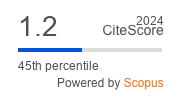The first generic tirzepatide GP30931: physicochemical and biological similarity to the reference drug
https://doi.org/10.33380/2305-2066-2025-14-2-2084
Abstract
Introduction. Metabolic syndrome is a multifactorial complex of metabolic disorders accompanied by type 2 diabetes mellitus and abdominal obesity. In the pharmacological correction of obesity and type 2 diabetes mellitus, the greatest effect is demonstrated by dual agonists of glucagon-like peptide-1 (GLP-1) and glucose-dependent insulinotropic polypeptide (GIP), in particular tirzepatide. The original drug (Mundjaro, pln: tirzepatide) is not registered in the Eurasian Economic Union (EAEU), which limits its availability to patients and leads to the need to develop a domestic generic.
Aim. Conducting a physicochemical and biological characterization of the drug Sejaro® (GP30931) in comparison with the original drug Mundjaro® to establish their comparability.
Materials and methods. Three batches of each drug (solution for subcutaneous administration, 25 mg/ml) were studied. The primary structure was verified using high-performance liquid chromatography coupled with mass spectrometry (HPLC-MS), peptide mapping and NMR (2D-NMR-1H-1H TOCSY). Secondary structure, higher order structures and aggregation were assessed by circular dichroism (CD), high-resolution nuclear magnetic resonance (NMR), fluorescence quantum yield (FQY) and dynamic light scattering (DLS). Impurity profiles were analyzed using size-exclusion and reversed-phase HPLC. Functional activity was determined in cellular tests for activation of calcium currents through GLP-1 and GIP receptors with an assessment of the half-maximal effective concentration (EC50); equivalence was confirmed by the two-sided test (TOST, 90 % confidence interval).
Results and discussion. HPLC-MS and mapping confirmed identical mass (4,810.52 Da) and amino acid sequence. NMR spectra, CD and CF profiles, and DLS were completely consistent, which allows us to conclude that the secondary and tertiary structures of the preparations are structurally identical. The content of all types of impurities in GP30931 did not exceed the Munjaro values. The difference in EC50 values for activation of GLP-1 and GIP receptors was ≤5 %, the comparative biological activity was within 0.80–1.25.
Conclusion. The complex of studies conducted using orthogonal methods showed that "Sejaro" (GP30931) and "Mundjaro" are structurally identical, comparable in impurity profile and biologically equivalent. The obtained data make a significant contribution to the scientific substantiation of the equivalence of the reproduced drug tirzepatide and the reference original drug, thereby providing a reliable basis for further registration and clinical use of Sejaro® without conducting additional clinical studies.
Keywords
About the Authors
I. A. LugovikRussian Federation
34A, Svyazi str., Strelna settlement, Saint Petersburg, 198515
A. V. Babina
Russian Federation
34A, Svyazi str., Strelna settlement, Saint Petersburg, 198515
S. S. Arutyunyan
Russian Federation
34A, Svyazi str., Strelna settlement, Saint Petersburg, 198515
D. О. Ermolaeva
Russian Federation
34A, Svyazi str., Strelna settlement, Saint Petersburg, 198515
V. B. Saparova
Russian Federation
34A, Svyazi str., Strelna settlement, Saint Petersburg, 198515;
4, Dolgorukovskaya str., Moscow, 1127006
T. N. Kobeleva
Russian Federation
34A, Svyazi str., Strelna settlement, Saint Petersburg, 198515
P. G. Zaikin
Russian Federation
34A, Svyazi str., Strelna settlement, Saint Petersburg, 198515
A. D. Mikushina
Russian Federation
8/3A, Khlopina str., Saint Petersburg, 194021
A. S. Bukatin
Russian Federation
8/3A, Khlopina str., Saint Petersburg, 194021
I. E. Eliseev
Russian Federation
School of Informatics, Physics and Technology. 6/1, 25 liniya Vasil'evskogo ostrova, Saint Petersburg, 199106
B. Ts. Zajchik
Russian Federation
room 210E-211E, 113/1, Leninsky prospekt, Moscow, 117198
Y. S. Keruchenko
Russian Federation
room 210E-211E, 113/1, Leninsky prospekt, Moscow, 117198
I. S. Ohrimenko
Russian Federation
Center for Research of Molecular Mechanisms of Aging and Age-Related Diseases. Institutsky pereulok, 9, Dolgoprudny, Moscow region, 141701;
Laboratory of Biomolecular NMR Spectroscopy. 16/10, Miklukho-Maklaya str., Moscow, 117997
E. V. Bocharov
Russian Federation
Center for Research of Molecular Mechanisms of Aging and Age-Related Diseases. Institutsky pereulok, 9, Dolgoprudny, Moscow region, 141701;
Laboratory of Biomolecular NMR Spectroscopy. 16/10, Miklukho-Maklaya str., Moscow, 117997
A. Kh. Taldaev
Russian Federation
Center for Research of Molecular Mechanisms of Aging and Age-Related Diseases. Institutsky pereulok, 9, Dolgoprudny, Moscow region, 141701;
Laboratory of Biomolecular NMR Spectroscopy. 16/10, Miklukho-Maklaya str., Moscow, 117997
V. A. Lushpa
Russian Federation
Center for Research of Molecular Mechanisms of Aging and Age-Related Diseases. Institutsky pereulok, 9, Dolgoprudny, Moscow region, 141701;
Laboratory of Biomolecular NMR Spectroscopy. 16/10, Miklukho-Maklaya str., Moscow, 117997
I. E. Makarenko
Russian Federation
34A, Svyazi str., Strelna settlement, Saint Petersburg, 198515;
4, Dolgorukovskaya str., Moscow, 1127006
R. V. Drai
Russian Federation
34A, Svyazi str., Strelna settlement, Saint Petersburg, 198515
References
1. Hirode G., Wong R. J. Trends in the prevalence of metabolic syndrome in the United States, 2011-2016. Jama. 2020;323(24):2526–2528. DOI: 10.1001/jama.2020.4501.
2. Wang H. H., Lee D. K., Liu M., Portincasa P., Wang D. Q.-H. Novel insights into the pathogenesis and management of the metabolic syndrome. Pediatric Gastroenterology, Hepatology & Nutrition. 2020;23(3):189–230. DOI: 10.5223/pghn.2020.23.3.189.
3. Belenkov Yu. N., Privalova E. V., Kaplunova V. Y., Zektser V. Y., Vinogradova N. N., Ilgisonis I. S., Shakaryants G. A., Kozhevnikova M. V., Lishuta A. S. Metabolic Syndrome: Development of the Issue, Main Diagnostic Criteria. Rational Pharmacotherapy in Cardiology. 2018;14(5):757–764. (In Russ.) DOI: 10.20996/1819-6446-2018-14-5-757-764.
4. Schwartz S. S., Epstein S., Corkey B. E., Grant S. F. A., Gavin III J. R., Aguilar R. B. The time is right for a new classification system for diabetes: rationale and implications of the β-cell–centric classification schema. Diabetes Care. 2016;39(2):179–186. DOI: 10.2337/dc15-1585.
5. Schwartz S. S., Epstein S., Corkey B. E., Grant S. F. A., Gavin III J. R., Aguilar R. B., Herman M. E. A unified pathophysiological construct of diabetes and its complications. Trends in Endocrinology & Metabolism. 2017;28(9):645–655. DOI: 10.1016/j.tem.2017.05.005.
6. Tsygankova O. V., Veretyuk V. V., Ametov A. S. Incretins today: multiple effects and therapeutic potential. Diabetes mellitus. 2019;22(1):70–78. (In Russ.) DOI: 10.14341/DM9841.
7. DeFronzo R. A. From the triumvirate to the ominous octet: a new paradigm for the treatment of type 2 diabetes mellitus. Diabetes. 2009;58(4):773–795. DOI: 10.2337/db09-9028.
8. Kim W., Egan J. M. The role of incretins in glucose homeostasis and diabetes treatment. Pharmacological Reviews. 2008;60(4):470–512. DOI: 10.1124/pr.108.000604.
9. Coskun T., Sloop K. W., Loghin C., Alsina-Fernandez J., Urva S., Bokvist K. B., Cui X., Briere D. A., Cabrera O., Roell W. C., Kuchibhotla U., Moyers J. S., Benson C. T., Gimeno R. E., D'Alessio D. A., Haupt A. LY3298176, a novel dual GIP and GLP-1 receptor agonist for the treatment of type 2 diabetes mellitus: from discovery to clinical proof of concept. Molecular Metabolism. 2018;18:3–14. DOI: 10.1016/j.molmet.2018.09.009.
10. Sweta, Gupta S., Bansal S., Devi S., Sharma S., Laxmi, Deepa. Tirzepatide a novel anti diabetic molecule unfold dual action. Discover Public Health. 2024;21(1):75. DOI: 10.1186/s12982-024-00200-2.
11. Fernández-Carneado J., Vallès-Miret M., Arrastia-Casado S., Almazán-Moga A., Macias M. J., Martin-Malpartida P., Vilaseca M., Díaz-Lobo M., Vazquez M., Sanahuja R. M., Gambús G., Ponsati B. First generic Teriparatide: structural and biological sameness to its reference medicinal product. Pharmaceutics. 2024;16(4):537. DOI: 10.3390/pharmaceutics16040537.
12. Rogers-Crovak J. A., Delaney E. J., Detlefsen D. J. Recommendation for Clarifying FDA Policy in Evaluating "Sameness" of Higher Order Structure for Generic Peptide Therapeutics. The AAPS Journal. 2024;27(1):8. DOI: 10.1208/s12248-024-00994-8.
13. Demmon S., Bhargava S., Ciolek D., Halley J., Jaya N., Joubert M. K., Koepf E., Smith P., Trexler-Schmidt M., Tsai P. A cross-industry forum on benchmarking critical quality attribute identification and linkage to process characterization studies. Biologicals. 2020;67:9–20. DOI: 10.1016/j.biologicals.2020.06.008.
14. Sun B., Willard F. S., Feng D., Alsina-Fernandez J., Chen Q., Vieth M., Ho J. D., Showalter A. D., Stutsman C., Ding L., Suter T. M., Dunbar J. D., Carpenter J. W., Mohammed F. A., Aihara E., Brown R. A., Bueno A. B., Emmerson P. J., Moyers J. S., Kobilka T. S., Coghlan M. P., Kobilka B. K., Sloop K. W. Structural determinants of dual incretin receptor agonism by tirzepatide. Proceedings of the National Academy of Sciences. 2022;119(13):e2116506119. DOI: 10.1073/pnas.2116506119.
15. Micsonai A., Wien F., Kernya L., Lee Y.-H., Goto Y., Réfrégiers M., Kardos J. Accurate secondary structure prediction and fold recognition for circular dichroism spectroscopy. Proceedings of the National Academy of Sciences. 2015;112(24):E3095–E3103. DOI: 10.1073/pnas.1500851112.
16. Micsonai A., Moussong É., Wien F., Boros E., Vadászi H., Murvai N., Lee Y.-H., Molnár T., Réfrégiers M., Goto Y., Tantos Á., Kardos J. BeStSel: webserver for secondary structure and fold prediction for protein CD spectroscopy. Nucleic Acids Research. 2022;50(W1):W90–W98. DOI: 10.1093/nar/gkac345.
17. Wang D., Park J., Patil S. M., Smith C. J., Leazer Jr. J. L., Keire D. A., Chen K. An NMR-based similarity metric for higher order structure quality assessment among U.S. marketed insulin therapeutics. Journal of Pharmaceutical Sciences. 2020;109(4):1519–1528. DOI: 10.1016/j.xphs.2020.01.002.
18. Arbogast L. W., Brinson R. G., Marino J. P. Application of natural isotopic abundance <sup>1</sup>H-<sup>13</sup>C- and <sup>1</sup>H-<sup>15</sup>N-correlated two-dimensional NMR for evaluation of the structure of protein therapeutics. In: Methods in enzymology. New York: Academic Press; 2016. Volume 566. P. 3–34. DOI: 10.1016/bs.mie.2015.09.037.
19. Levy G. C., Godwin A. D., Hewitt J. M., Sutcliffe C. Natural abundance <sup>15</sup>N and <sup>13</sup>C spectroscopy. Aminobenzoic acids, substituted anilines, and related compounds. Journal of Magnetic Resonance. 1978;29(3):553–562. DOI: 10.1016/0022-2364(78)90013-6.
20. Kelly S. M., Jess T. J., Price N. C. How to study proteins by circular dichroism. Biochimica et Biophysica Acta (BBA) – Proteins and Proteomics. 2005;1751(2):119–139. DOI: 10.1016/j.bbapap.2005.06.005.
21. Jones C. Circular dichroism of biopharmaceutical proteins in a quality-regulated environment. Journal of Pharmaceutical and Biomedical Analysis. 2022;219:114945. DOI: 10.1016/j.jpba.2022.114945.
Supplementary files
|
|
1. Графический абстракт | |
| Subject | ||
| Type | Other | |
View
(1MB)
|
Indexing metadata ▾ | |
Review
For citations:
Lugovik I.A., Babina A.V., Arutyunyan S.S., Ermolaeva D.О., Saparova V.B., Kobeleva T.N., Zaikin P.G., Mikushina A.D., Bukatin A.S., Eliseev I.E., Zajchik B.Ts., Keruchenko Y.S., Ohrimenko I.S., Bocharov E.V., Taldaev A.Kh., Lushpa V.A., Makarenko I.E., Drai R.V. The first generic tirzepatide GP30931: physicochemical and biological similarity to the reference drug. Drug development & registration. 2025;14(2):54-74. (In Russ.) https://doi.org/10.33380/2305-2066-2025-14-2-2084
JATS XML











































